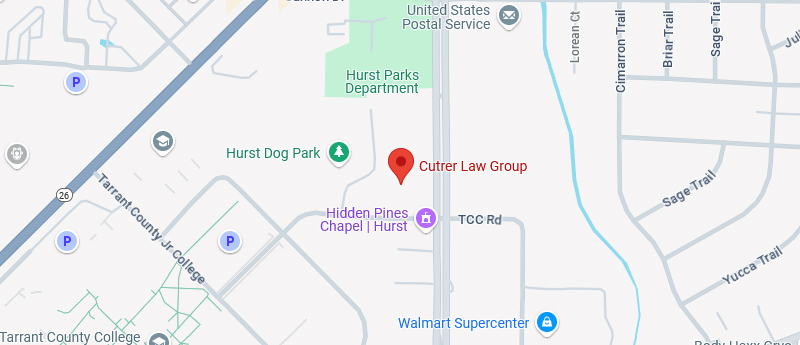What Should You Know About Spousal Support Payments in Texas?
In Texas, divorcing spouses must disclose their incomes, properties, assets, and debts. The court considers these disclosures when it decides if spousal support will be ordered. In Tarrant and surrounding counties, let a Bedford spousal support lawyer help you with the paperwork and the divorce process.
How is a spousal support (or “alimony”) amount determined by Texas courts? What if the spousal support amount that you are ordered to pay – or that you anticipate receiving – isn’t a fair amount? For how long will a divorced spouse receive or make spousal support payments?
There is no “one size fits all” rule. Under Texas law, the amount and duration of spousal support payments depend on the details of your marriage and divorce. In Tarrant and surrounding counties, a Bedford spousal support attorney can offer you the personalized legal advice you’re going to need.
What is Considered When Texas Judges Make Spousal Support Decisions?
Whether spousal support should or should not be ordered is often the most contentious issue in a divorce proceeding. Judges in Texas take several factors into account when they order – or choose not to order – spousal support payments. These factors will include:
- the length of the marriage
- the assets, properties, incomes, and debts of both spouses
- the health and age of both spouses
- the ability of the receiving spouse to be self-supporting
- the loss of one spouse’s income if that spouse gave up a career to raise the children
- whether a minor child or minor children are still residing with one spouse
- whether a disabled child from the marriage (a minor or adult) requires special care
- one spouse’s loss of health insurance as a result of the divorce
- anything else the court believes should be considered
A Texas court may also consider anticipated retirement benefits, retirement assets, and the retirement eligibility age of the spouses when it determines the amount and duration of spousal support payments.
For How Long Are Spousal Support Payments Made?
After a short-term marriage, which is defined in Texas as a marriage that lasts less than ten years, it is unlikely that spousal support payments will be ordered. If they are, payments are usually for a limited period of time that allows the receiving spouse to transition to financial independence.
For marriages that last beyond ten years, spousal support may be awarded, but the payments are not intended to be permanent or indefinite. Spousal support payments may also be awarded when the receiving spouse is disabled or is caring for a disabled child from the marriage.
When the receiving spouse or a child from the marriage is disabled, a Texas court may order spousal support payments for as long as the court considers such payments appropriate.
Are Spousal Support Payments Capped? When May Payments Be Modified or Terminated?
Court-ordered spousal support payments in the State of Texas may be modified or terminated if there is a substantial change in either spouse’s life situation, such as a change in employment or income. Spousal support always ends when one spouse dies or the receiving spouse remarries.
Under Texas law, the amount of spousal support that may be ordered by the court is capped at the lesser of $5,000 per month or twenty percent of the paying spouse’s average gross monthly income. The cap is meant to ensure the payment amounts are fair and reasonable for both parties.
As a consequence of the federal Tax Cuts and Jobs Act of 2017, spousal support is no longer tax-deductible for the paying spouse and is no longer considered as income for the receiving spouse.
If the court orders you to pay or receive spousal support as a part of the divorce settlement, you may believe that the court’s order is not fair. Your Bedford spousal support attorney can review the court order, and if it is not fair, your attorney may seek to have the court order modified.
Is There a Residency Requirement?
A divorce in Texas can be a quite complicated legal process. If you’re divorcing or anticipating a divorce in Tarrant and surrounding counties, it is essential to be represented and advised from the start by a Bedford spousal support lawyer.
To file for a divorce in Texas, one or both of the spouses must have resided in this state for a minimum of six months and in the county where the divorce petition is filed for at least ninety days.
Do You Need Grounds for Divorce?
Texas is a no-fault divorce state, so it is not necessary for one spouse to prove the other is to blame or at fault for the divorce. However, it is also possible in Texas to seek an at-fault divorce for one or more of these reasons:
- One spouse is guilty of cruel treatment, abandonment, or adultery.
- One spouse has a felony conviction or has been confined to a mental institution.
- The spouses have resided separately for at least three years.
A divorce in Texas may be contested or uncontested. An uncontested divorce is both faster and less costly, but when you and your spouse cannot agree on spousal support, the division of properties and assets, child custody, or child support, the divorce will be a contested divorce.
Let Cutrer Law Group Represent You in Your Divorce Proceeding
Bedford attorney Anita K. Cutrer is Board Certified in Family Law by the Texas Board of Legal Specialization. She has practiced family law for over twenty-five years, and she limits her practice to clients in Tarrant and surrounding counties.
If you need spousal support payments after a divorce, Cutrer Law Group will fight for your right to those payments. If you believe the court has ordered you to pay too much, attorney Anita K. Cutrer will review the order, and if it’s unfair, she will take the appropriate steps on your behalf.
Cutrer Law Group will make sure that you’re treated fairly by the court. Let attorney Anita K. Cutrer represent you in your divorce proceeding or if you need to modify the court’s spousal support order. Contact her to schedule a case evaluation by calling 817-854-1651.





 1845 Precinct Line Road
1845 Precinct Line Road info@akcfamilylaw.com
info@akcfamilylaw.com 817-854-1651
817-854-1651



